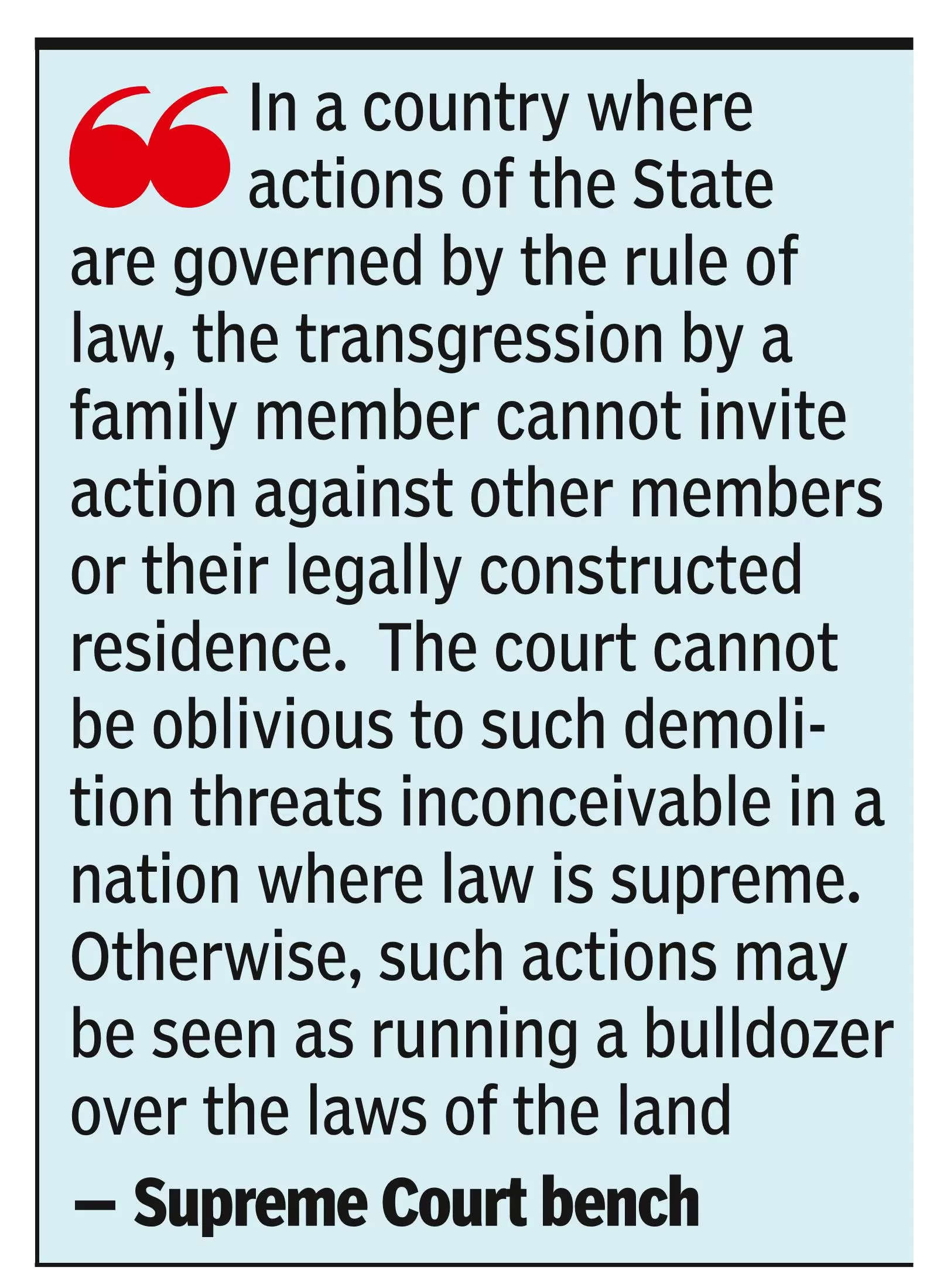Observing that government authorities indulging in ‘bulldozer justice’ amounts to “running a bulldozer over the laws of the land”, Supreme Court on Thursday held that such actions are against the law and said involvement in crime is no ground for demolition of a property.
This is the second time this month that the court has come down heavily on demolition of property of those accused in various crimes. On September 2, an SC bench had said law does not permit the destruction of the family shelters of even convicts, and agreed to frame guidelines to be followed across all states to prevent arbitrary demolitions.

The practice, which was initiated by Uttar Pradesh government as a punitive measure against accused persons, is being replicated by others, including Rajasthan, Gujarat and Madhya Pradesh.
On Thursday, hearing the plea of a family from Gujarat whose home the municipal authorities had threatened to bulldoze, a bench of Justices Hrishikesh Roy, Sudhanshu Dhulia and S V N Bhatti strongly disapproved of the practice. It said the entire family could not be punished by demolishing the house for the offence allegedly committed by one member.
“The court cannot be oblivious to such demolition threats, inconceivable in a nation where law is supreme,” it said. Such actions, “may be seen as running a bulldozer over the laws of the land”, it added.
In a country where actions of the State are governed by the rule of law, the transgression by a family member cannot invite action against other members of the family or their legally constructed residence. Alleged involvement in crime is no ground for demolition of a property. Moreover, the alleged crime has to be proved through due legal process in a court of law.”
Agreeing to hear the petition, the bench issued notice to the Gujarat govt and restrained the municipal authority from taking any action against the property.
Senior advocate Iqbal Syed, appearing for the petitioner, placed before the bench the revenue record of the property to show that there was no illegality in the construction of the house in which the family has been living for the past two decades. He also referred to the resolution passed in 2004 by the gram panchayat which granted permission to build the residential house.
The municipal body allegedly threatened to demolish the house after a criminal case was registered against one of the family members. The petitioner alleged that the law should take its own course against the person accused of the crime but the whole family should not be punished.
“But the Nagar Palika or others in the shadow of the Nagar Palika, should have no reason to either threaten or to take any steps such as using bulldozer, to demolish the legally constructed and legally occupied house/residence of the petitioner,” the petition said.
After a brief hearing, the apex court granted interim relief and posted the hearing after four weeks. “In the meantime, status quo in respect of the petitioner’s property is to be maintained by all concerned,” it noted.


